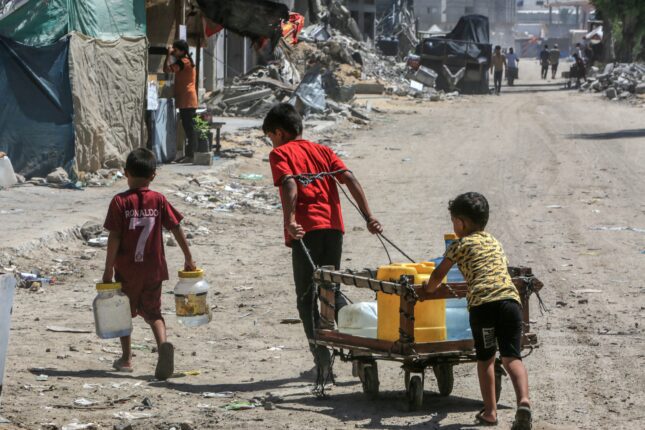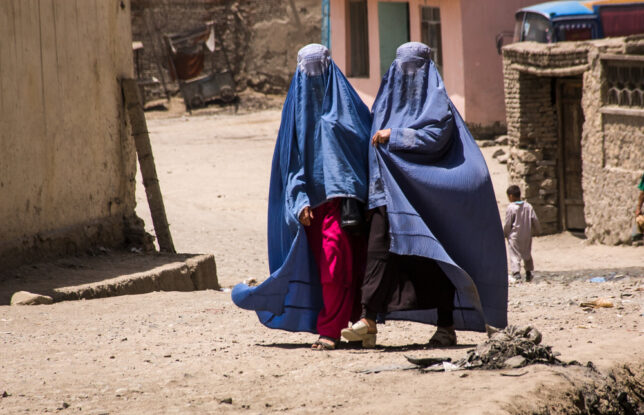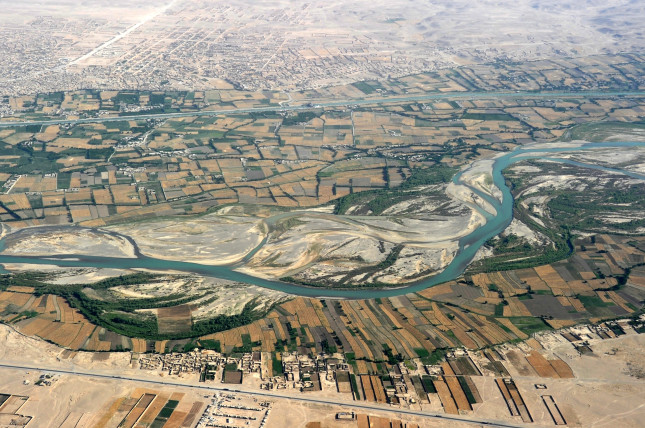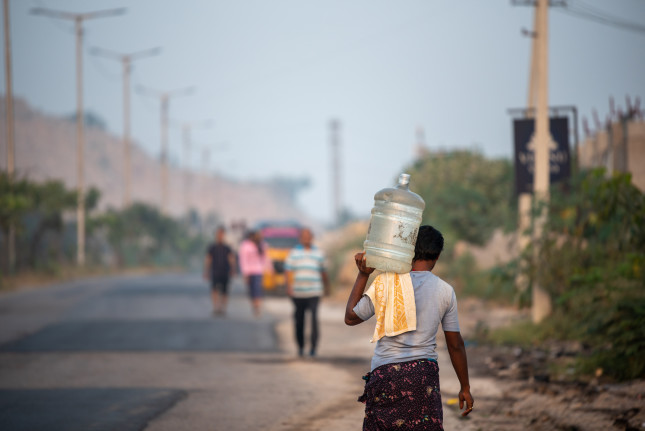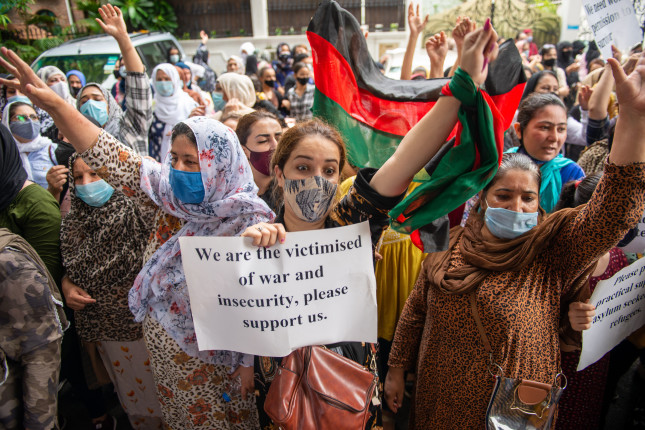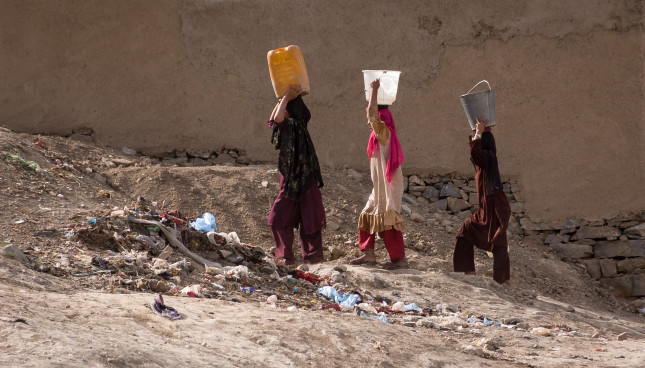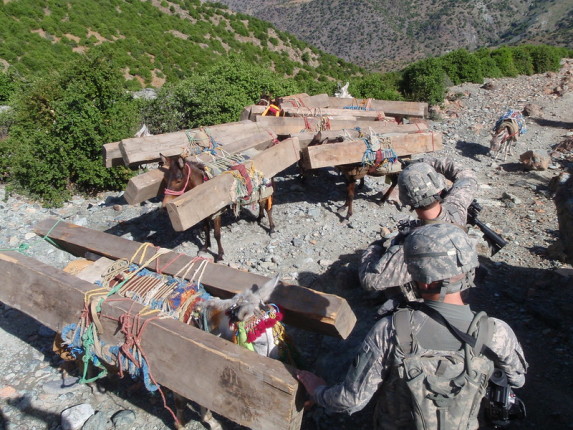-
Afghanistan Widows: The Silent Struggle of Women-Headed Households
›Dot-Mom // Guest Contributor // February 19, 2025 // By Massoma Jafari, Ijia Ormel, Faiza Rab, Basnama Ayaz, Carla Taylor & Salim Sohani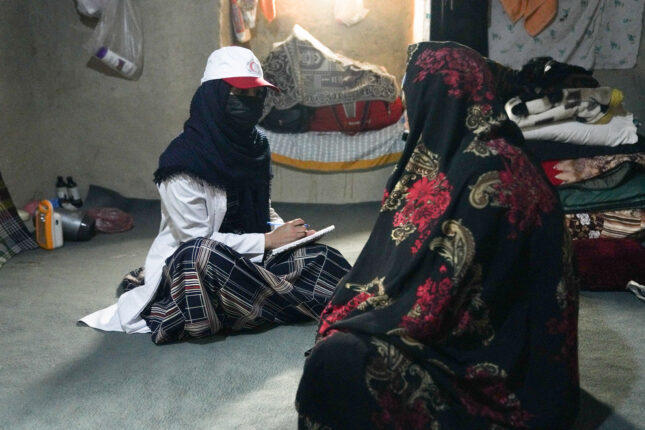
Close your eyes for a moment. Now imagine stepping back in time to an era when women in Western countries had no rights, no security, and no voice.
Now open your eyes again. In our own moment, millions of Afghan women—and in particular widows—live in just such a moment. This reality has never changed for them, and, in fact it has only worsened. Afghanistan remains one of the most repressive places in the world to be a woman: education is banned, employment is restricted, and even traveling alone is forbidden.
-
War and Climate Change Intensify Global Water-related Conflicts
›
The Pacific Institute recently updated its Water Conflict Chronology—a database of water-conflict events that began to take form in the 1980s. The recent updates include the addition of 300 new entries to the database, highlighting the alarming rise of water-related conflicts in the last few years. Despite this overwhelming evidence of a growing trend in water-related conflicts, global attention toward addressing them remains negligible.
-
Under the Veil of Oppression: The Agonizing Plight of Afghanistan’s Hazara Women
›
The recent arrests of women in Dasht-e-Barchi of Kabul, Daikundi province, and Jaghori district of Ghazni in Afghanistan by the Taliban for inadequate adherence to Islamic dress codes highlights a critical and distressing situation. These events are not an isolated occurrence. Rather, they are a reflection of the intensifying oppression and systemic threats faced by women in the country, particularly those from ethnic and religious communities such as the Hazaras.
-
A Loss of Ecological Security: The Demise of the Sistan Basin
›
Water is one of the most critical factors for regional security and stability because it is multidimensional. It is an essential resource in ecosystem services & environmental security, yet its importance creates significant possibilities for insecurity—including corruption, environmental crimes, and other illegal activities.
-
No, There Will Not Be a War for Water
›
Some people falsely believe that the Afghanistan takeover by the Taliban during a drought increases the risk of violence over shared waters such as the Helmand and Kabul Rivers. Violent clashes over scarce resources have been predicted as “likely,” or even “certain” for 35 years, and despite such “water wars” never having happened, hypotheses about them keep cropping up around conflict-affected regions such as the Middle East and South Asia. In reality, conflicts are multidimensional with social, political, economic, and ecological drivers producing conflicts through their complex interrelations. Because of these multidimensional conflict drivers, the water war message is wrong-headed and needlessly scaremongering.
-
Afghans that Remain Are in Dire Need of Humanitarian Support
›
Although large-scale evacuation efforts have dominated international attention, evacuation is only an option for a “tiny fraction” of the Afghan population, said Vicki Aken, Country Director for Afghanistan at the International Rescue Committee, at a congressional briefing hosted by the Tom Lantos Human Rights Commission. The briefing was focused on the evolving humanitarian situation in Afghanistan and the need for civil protection in the country. “More than 40 million Afghans will remain in Afghanistan,” said Aken. “And half of them already face critical humanitarian needs.”
-
Water and (in-)Security in Afghanistan as the Taliban Take Over
›
The takeover of Afghanistan by the Taliban not only threatens people’s lives, security, and fundamental freedom, but also significantly increases risks of water insecurity both immediately and in the long term. While our hearts and minds are with the people struggling for survival and freedom in Afghanistan today, we should not forget that the implications of Taliban rule will add yet another challenge to the long-term future of the Afghan people, and possibly also to the entire region’s stability.
-
Local Environmental Governance to Reduce Conflict and Deforestation in Afghanistan
›
How should the international community support the stabilization of Afghanistan after U.S. and NATO troops withdraw? Answers from President Biden, high ranking U.S. administration officials, and lawmakers have focused on funding the Afghan military and police and remotely retaining U.S. lethal capacity. Development aid is mentioned only in the vaguest of terms. But as withdrawal plans solidify, peace and resilience against insurgencies urgently require the administration to shift the focus to development and include support for local environmental governance. Looking at how crucial forests are to Afghanistan’s local economy and governance systems, we sketch the resource-conflict links and propose possibilities for local, environmental governance that the international community could support to quell insurgency and build the political, economic, and environmental foundations for peace in the country.
Showing posts from category Afghanistan.


